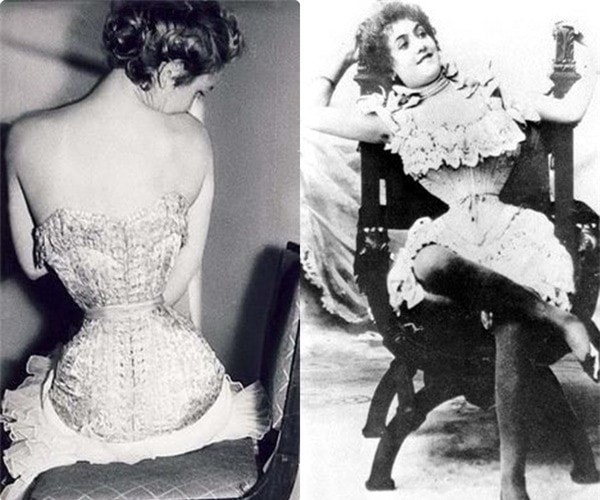The Burden of Praise
Compliments are both a gift and a burden – and this is true in almost every area of life. When compliments are given, the recipient feels not only happy but also anxious, and the pressure to maintain performance to live up to those compliments weighs heavily on their lives.
When writing about this, I remember the story of the female corset. Before the 16th century, the corset - a corset and waist-cinching garment - was born, considered a breakthrough in the fashion industry, creating an "hourglass" beauty and showing off the curves of the female body. From then until the 16th century, the praise for full breasts and "wasp" waist, considered as the standard body shape of women never stopped.

Many women of that period wore corsets day and night - corsets shaped with wooden or metal braces - hoping to maintain their perfect appearance in the eyes of those around them, despite the extreme pain and future health risks.
There is a famous picture of this: a woman in a corset leans against a wall, behind her are three strong adults pulling on the corset laces to tighten it as much as possible, surrounded by a few people watching and applauding. To keep the praise, the girl in the corset smiles, trying to forget the pain of broken bones and difficulty breathing.
In an open society, women are much luckier in being freed from many prejudices and backward customs; in many aspects, gender equality is gradually being leveled. However, there are still well-intentioned compliments that hide many invisible burdens, making it rare for women to truly be themselves.

Before the success of women, we often praise them for being “good at public affairs and good at housework”. That is, she must both complete her work excellently at the office or unit, and must also be busy taking care of all sorts of unnamed tasks at home. The image of a normal day for a “two-good” woman is busy from early morning to late night: waking up early to cook breakfast for the family, taking the children to school, working hard at the office, stopping by the market at noon to buy food to cook at home, sometimes having to “give up” her lunch break for the unwashed laundry, the pile of unwashed dishes, the unswept house…; the afternoon also loops between the office and home like that, in the evening she patiently teaches the children to study, puts them to sleep… and only late at night does she have a little time to do professional work.
A “good at two things” woman must be good at everything, good at everything, and excellent at everything. A woman whose husband helps and shares with her is praised as “lucky” and “blessed”; if not, everyone takes it for granted!
For more than 10 years as a journalist, I have interviewed many examples of “two-talented” women and realized that society is demanding too much of them. In fact, the role of economic pillar in the family today is no longer placed heavily on men but has shifted to women. However, despite being the pillar of the family and busy with social work, many women still do not receive support from their husbands or share housework.
No matter how successful a woman is at work, she is not considered a good woman if she does not fulfill her family responsibilities. Criticisms such as: Women who only care about work and do not care about their husband and children are good at what they do! And if they only do housework, focus on taking care of the family, and become a full-time housewife, there is no shortage of insults: Women who depend on their husbands! Therefore, women have to overcome many difficulties and pressures, both named and unnamed, to fulfill their social and family responsibilities.
A study by the Institute of Labor Science and Social Affairs (Ministry of Labor, Invalids and Social Affairs) shows that women have to do unpaid housework 105 minutes more per day, 12 hours per week, equivalent to 80 days per year than men!
Compliments are precious and important, but to some extent, they also create stereotypes and social prejudices that women must be this or that to be considered good women. On social networks, a satirical dialogue was shared by a man choosing a wife, that his wife must be beautiful, intelligent, skillful, have a good job, know how to please her husband and take care of children, be resourceful and capable, and be good at both internal and external affairs.
So, sometimes, in some places, praising and sharing women is just lip service, but in reality, the double burden of compliments makes women run tirelessly in the race to become perfect in the eyes of society.






